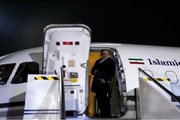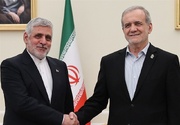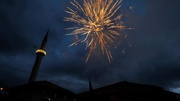The idea of an Asian Cooperation Dialogue (ACD) was first broached in 2000 by Dr. Surakiart Sathirathai (Thailand’s Minister of Foreign Affairs from 2001–2006 and later Deputy Prime Minister). Since the holding of the First Ministerial Meeting in Cha Am, Thailand in June 2002, The ACD’s membership has grown from 18 to 33 countries encompassing five different geographical areas of Asia: Central Asia, West Asia, East Asia, South Asia and Southeast Asia.
Bahrain, Bangladesh, Brunel Darussalam, Cambodia, China, India, Indonesia, Japan, Republic of Korea, Lao PDR, Malaysia, Myanmar, Pakistan, Philippines, Qatar, Singapore, Thailand, Vietnam, Kazakhstan, Kuwait, Oman, Sri Lanka, Bhutan, Iran, Mongolia, UAE, Russia, Saudi Arabia, Tajikistan, Uzbekistan, Kyrgyz Republic, Afghanistan, and Turkey are members to the forum.
Significantly, the ACD is a forum rather than an organization. As such, it has developed in two directions: dialogue and projects. The dialogue dimension consists of annual ACD Ministerial Meetings. Foreign Ministers also meet on the sidelines of the UN General Assembly to review ACD cooperation and deepen the “Asia’s voice” on the global stage. The areas of concern for which the ACD member countries encourage close cooperation and develop worthwhile projects are varied and vast.
The ministers of foreign affairs, who meet annually, constitute the ACD’s “higher body.” In the period between ministerial meetings, foreign ministers hold working meetings in which they discuss implementation of the projects and programs, exchange their views on key international and regional issues on the sidelines of the UN General Assembly session.
During the third meeting of ACD Foreign Ministers which was held in China, membership of the Islamic Republic of Iran was approved, on June 20 2004. Given the importance and role of culture in friendship among nations and to create solidarity among Asian nations, Islamic Republic of Iran proposed the Initiative of cultural cooperation as the twentieth project to ACD.
Subsequently, concept paper was prepared and approved by the third senior officials meeting. At the same meeting, Iran was elected as the prime mover of the project and India and Bahrain were selected as the co-prime movers. In the 9th ministerial meeting of ACD in Tehran on November 7-8 2010, Iran presented certain proposals for cooperation between member states. Subsequently the Meeting approved the presented proposals and placed Islamic Republic of Iran in charge of the executive state.
The first ACD officials meeting on cultural cooperation, was held in Tehran, Iran on May 9-10 2011. The purpose of the meeting was planning, policy making and promotion of cultural cooperation among member states. Based on the agenda, three working committees under titles of a) cinema, theatre, radio & TV; b) Research & Publication; and c) anthropology & cultural interaction were held, during which Islamic Republic of Iran was elected as a rapporteur and put forward sixteen proposals in the field of cultural cooperation which were approved by delegates. However, the final approval of the projects was postponed until the next ACD Officials Meeting on cultural cooperation to be held in Delhi, India.
The second meeting of the ACD Cultural Senior Officials was held on April 19-20 2012 in New Delhi. The meeting addressed and approved all proposals made by Iran. However, in final report, the member states, once again, called for operation plans as well as detailed projects and plans by the Islamic Republic of Iran. Finally, it was agreed that the next meeting would be held in Tehran. The 3rd ACD Senior Officials Meeting on Cultural Cooperation was held in Tehran, on May 7-8 2013 at ministers of culture level. The two-day meeting concluded with a twenty-article statement, emphasizing on the unique role of the Asian Cooperation Dialogue as the entity for the only Asia- wide forum to exchange views and promote cooperation in areas of mutual interests.
In Article 7 of this Agreement, they approved the establishment of the ACD Cultural Coordination Center in Tehran to ensure the implementation of cultural initiatives, as well as projects initiated by ACD member states and to improve cultural ties among member states. However, the action and implementation plan proposed by Islamic Republic of Iran in two previous meetings were not raised and discussed at the third meeting and the session concluded without any concrete result.
Following the presidential elections in Iran, in 2013 and the establishment of new government Ali Jannati, Minister of Culture and Islamic Guidance appointed Dr. Issa Rezazadeh as the president of Cultural Coordination Center at ACD on August 2014.
SH/PR

























Your Comment